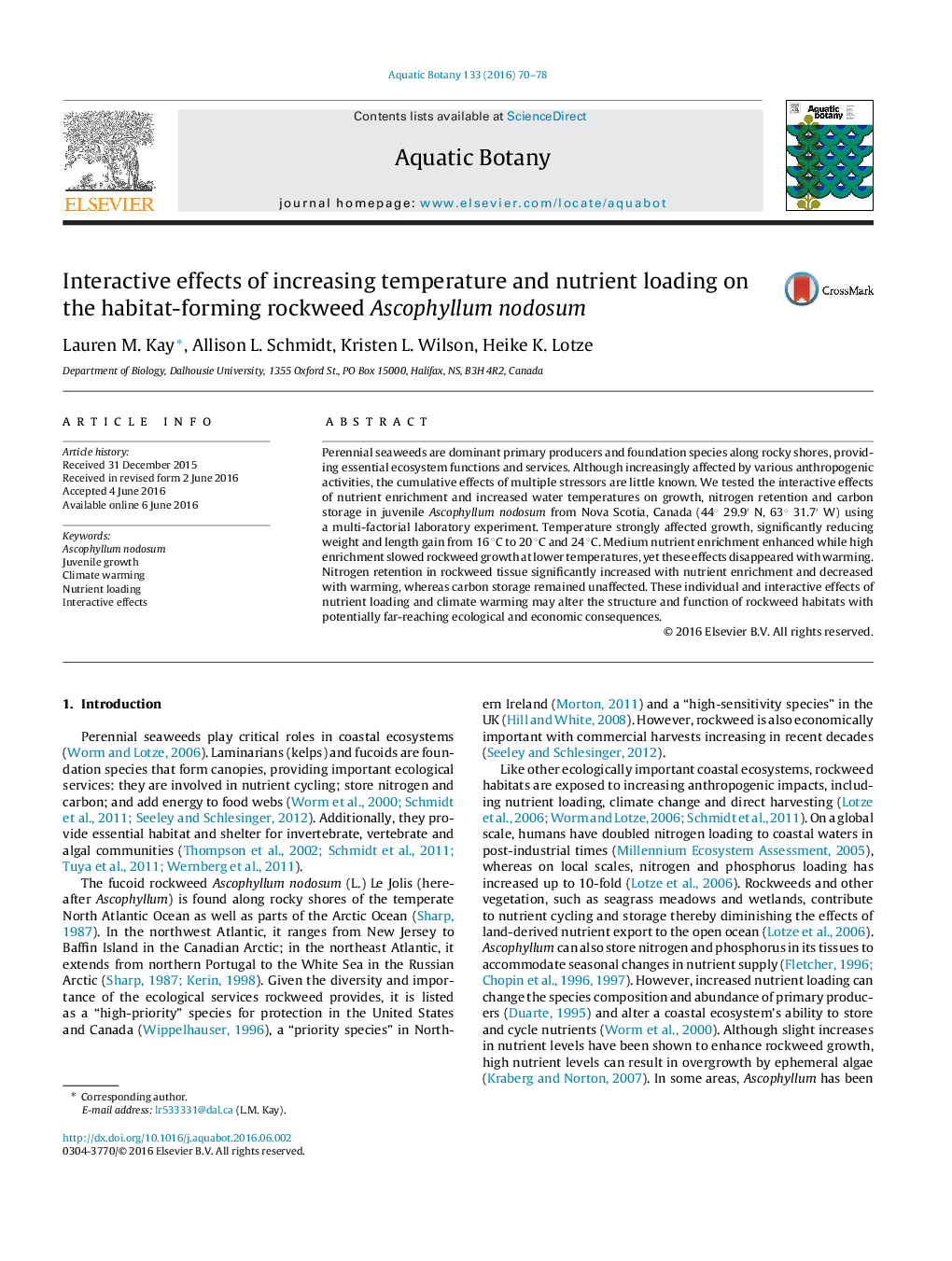| Article ID | Journal | Published Year | Pages | File Type |
|---|---|---|---|---|
| 4527575 | Aquatic Botany | 2016 | 9 Pages |
•Temperature increases that reflect predicted increases slowed Ascophyllum’s growth.•Nutrient loading effects were observed at low temperature, but obscured at high temperature.•Effects of nutrient loading and increasing temperature on Ascophyllum are cumulative.
Perennial seaweeds are dominant primary producers and foundation species along rocky shores, providing essential ecosystem functions and services. Although increasingly affected by various anthropogenic activities, the cumulative effects of multiple stressors are little known. We tested the interactive effects of nutrient enrichment and increased water temperatures on growth, nitrogen retention and carbon storage in juvenile Ascophyllum nodosum from Nova Scotia, Canada (44° 29.9′ N, 63° 31.7′ W) using a multi-factorial laboratory experiment. Temperature strongly affected growth, significantly reducing weight and length gain from 16 °C to 20 °C and 24 °C. Medium nutrient enrichment enhanced while high enrichment slowed rockweed growth at lower temperatures, yet these effects disappeared with warming. Nitrogen retention in rockweed tissue significantly increased with nutrient enrichment and decreased with warming, whereas carbon storage remained unaffected. These individual and interactive effects of nutrient loading and climate warming may alter the structure and function of rockweed habitats with potentially far-reaching ecological and economic consequences.
